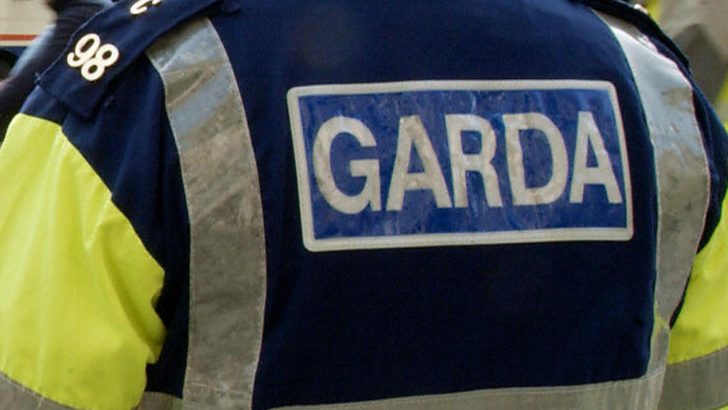Recent events don’t support the notion, writes David Quinn
The constant refrain is that Ireland is becoming a more ‘compassionate’ place. This notion needs to be robustly challenged. The best that can be said is that we have become more compassionate in some ways and worse in others.
Last week, Co Louth was witness to an appalling murder linked to an ongoing feud between warring families in Drogheda. The victim was Keith Branigan and he was gunned down in the Ashling Holiday Park in Clogherhead.
The new Auxiliary Bishop of Armagh, Michael Router, condemned the incident and appealed to those involved in the feud to desist from further violence.
He said: “News reports linked this murder to the ongoing feud between rival gangs in Drogheda and therefore the threat of reprisals is, unfortunately, a real one.
“Such a cycle of violence will only lead to further tragedy and loss of life so I would appeal for those involved to desist and consider the futility of their actions.”
Attacks
There have now been no fewer than 70 gang-related incidents in the greater Drogheda area, ranging from stabbings and beatings to shootings and petrol-bomb attacks on family homes. The town has never seen anything like it.
In general, Ireland is becoming a more violent society. We may still have a low murder rate compared with many other Western countries, but the number of murders that take place here every year is far higher than half a century ago.
We see a lot more on-street violence. Trains, railway stations, buses see far more violence than they once did.
The National Bus and Rail Union (NBRU) said recently that bus and rail services could be withdrawn from what called “particular black spots” from the middle of next month, in advance of Hallowe’en.
The General Secretary of the union, Dermot O’Leary, said: “The level of antisocial behaviour and downright thuggery across our public transport system has reached epidemic proportions. We simply cannot, we simply will not, stand idly by and allow it to continue unchecked.”
We have a far worse problem of drug abuse than we once did. Your house is far more likely to be burgled than was the case 40 or 50 years ago.
If you go back to the mid-1950s, there were about 400 reported crimes per 100,000 people each year. In the meantime, that has risen tenfold.
When these sorts of figures are pointed out, defenders of the new, liberal status quo will say that in the past we hid crime better. But this only makes sense if you are referring to abuse that took place in families or in institutions. Obviously, we had a great deal of institutional abuse in the past.
But in general, people will cover up crimes that make them look bad. They might also not report crimes if they think doing so is a waste of time. They do not cover up crimes otherwise, and some crimes are very hard to hide.
For example, it is very difficult to hide a murder, especially one that happens in broad daylight. It is hard to hide drug abuse when so much of it is to be seen on our streets every day.
Violent behaviour
You can’t hide violent behaviour on our public transport system, and why would you hide it anyway? It makes much more sense to report it so it can then be acted on, especially when reporting it can’t rebound on you in any way.
In addition, while you might not report minor theft, you will report a stolen car, or a burgled home, if only for insurance purposes.
So, it is absurd to claim that crime was as high in the past as today and we simply covered it up. Most crimes are not the sort anyone would want to hide.
Rising crime does not fit with the narrative that we are becoming more ‘compassionate’. A more compassionate society ought to produce less crime, by definition. That should especially be the case as we become more prosperous. Ireland in the 1950s was far poorer than today but had far less crime.
But clearly, we have become a more tolerant society? In some respects, that is true, at least in the area of sexual behaviour. For example, we are far more tolerant towards gay people and single mothers.
Then again, we have attached so much importance to the notion of personal freedom that we now tolerate abortion, marital breakdown, and large numbers of fathers not raising their own children.
Rising crime is also a sign of a diminished sense of personal responsibility,,,”
Aborting a child is a very strange definition of ‘compassion’. Marital breakdown, for its part, can genuinely be a response to a very difficult situation, but more than half of marriages that end in separation or divorce fall into the category of ‘low-conflict’ marriages, that is, there is no violence, and little rowing between the couples. The children are often blissfully unaware of any difficulties between their parents, and sometimes the end of the marriage comes as a shock to one of the spouses as well. They believed things were good enough.
And so we see that in the name of ‘compassion’ and ‘freedom’ people give themselves the right to walk away from their responsibilities and many victims are created as a result, especially children.
Rising crime is also a sign of a diminished sense of personal responsibility and moral accountability, something that used to be instilled in us by religion. The less we police our own behaviour, the more police we need on the streets. It is hard to square this with the notion we are more compassionate now than in the past. The real picture is far more complex than that.


 David Quinn
David Quinn
